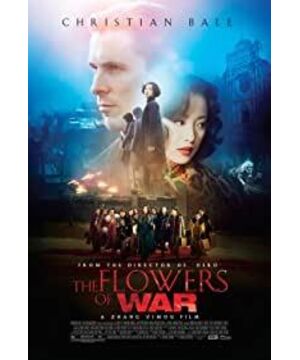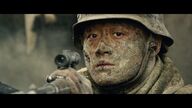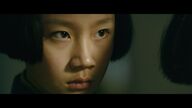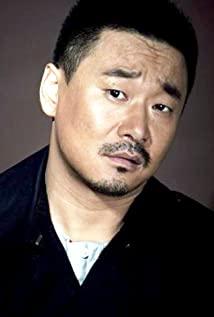Before talking about "Jinling Thirteen Hairpins", one thing is certain. This is a typical Zhang Yimou's work. Its creative mode continues the fifth generation of production tradition, telling the individual's pain and choices in the general environment. Zhang Yimou chose Yan Geling’s work because he was not good at screenwriters, and a good adapted screenplay is the cornerstone of success; Zhang Yimou is always good at discovering newcomers, so he launched Ni Ni, who plays Yumo, with extraordinary vision; in addition, every important contemporary director All have their own set of methods for processing visual images. Zhang Yimou's uniqueness lies in photography and color, which is prominent in the film. It's like handing Jiang Wen or Chen Kaige to "Jinling Thirteen Hairpins", it must be a different look: black or more magnificent. "Schindler's List" and the earlier "Nanjing! Nanjing! "Both black and white photography is used, one is to avoid excessive visual impact and maintain balance. The second is to keep a distance from the chaotic and disorderly massacre scene and keep thinking. As a photographer, Zhang Yimou did not choose to abolish martial arts by himself in "Jinling Thirteen Hairpins". So, against the background of a cruel war, in a hellish city, who should these wanton colors be placed on? Women, a group of fleeing prostitutes. They have dealt with the three religions and nine liu, and have seen many scenes. Although they are afraid of death, they are not wrapped in a pile of torn clothes in order to save their lives. As a result, as soon as these prostitutes appeared on the stage, they became the focus of the film. In slow motion, they were wearing heavy makeup, wearing gold and jade, cheongsam and fox fur. They were seen in Instructor Li's sight, and the focus was once on Yumo; the female student Shujuan's sight has been paying attention to them, and her spearhead has always been aimed at the most outstanding Yumo. Foreigner John, when he saw this group of charming women, he showed his longing unabashedly. It can be said that up to this part, these things are what Zhang Yimou is good at. He once again found the author's technique of depicting women, but this time the space has been changed from the mountainous countryside to the Nanjing city of the Republic of China. Through a lively war scene, "Jinling Thirteen Hairpins" brought the characters and audience to the church. In an illusion of calm, waiting for the arrival of danger and panic. Counting the midway search for people, female students saw the city on fire on the roof of the building. In 1937, the city of Nanjing was compressed into a church. In this regard alone, Zhang Yimou's choice and judgment are correct. One is to follow the textual prototype, and the other is to avoid upset position issues. Several sets of counterpoint relationships appear in the film, which is intriguing. One is Shujuan and her traitor father, the movie It took a lot of space to show. The second is in the dialogue, Yumo and her unscrupulous stepfather, John, who is the father, shakes out the daughter. Both the daughter and the father suffered misfortune and death, until the setting of Shujuan and Yumo, there are mirror contrasts between their names and roles. Things are impermanent in this world, but they are inextricably linked to each other. Even the ballad tunes in the film are first the Japanese "Hometown", then the choir hymn by the female students, and finally the "Qinhuai Jing" by the prostitutes. They are all related to beauty, but placed in different environments means that they are immediately different. In terms of the details of the story, Zhang Yimou finally did not repeat the same mistakes he had made in these ten-year blockbusters. All of this still relies on the script. Although some critics say that "Jinling Thirteen Hairpins" lacks a more obvious drama climax, in the face of this extraordinarily heavy topic, does it really resemble "The Devil Is Coming" or "Nanjing!" Nanjing! "In that way, come to an extremely scary goblin carnival. At least to "Nanjing! Nanjing! "In terms of that, the arrangement of the victory carnival was extremely outrageous. At the same time, "Jinling Thirteen Hairpins" did not commit Lu Chuan's naivety. It stopped the story at the open ending and stopped Yu Shujuan's off-painting narration. She survived. As for Yumo and others, no one knows. This is just a story in that year, among the tens of thousands of tragedies. [The Beijing News sees that the newspaper has been deleted]
View more about The Flowers of War reviews










